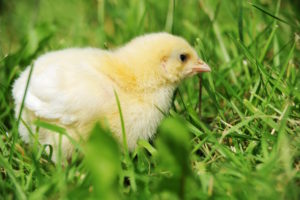
“Knock. Knock.”
“Why did the chicken cross the road?”
“Why did the elephant paint its toenails red?”
Answer: Because they turned six-years-old.
Spend a few hours with a six or seven-year-old and you might hear a joke. Or two. If you are lucky they’ll make sense. Many times I’ve sat at a table full of six-year-olds giggling at a joke that was absolutely non sequitur. At least to me.
Until about age six or seven, we, humans, take in information literally. A play on words, a metaphor, a simile, an idiom are lost on a younger child and might cause them some confusion or distress.
One summer day when I was not yet six, my father phoned from work while my mom was getting my younger siblings down for a nap. I answered the phone and listened to my father’s request. “Please tell your mom that I’m tied up at the office and not to wait dinner for me. Can you do that for me, please.”
As soon as the line went dead I burst into tears and ran sobbing to my mother. “Mommy. Mommy. Daddy just called and some bad men have him tied up at the office and won’t let him come home for dinner.”
At that point in my development, language was still literal, and I don’t think I had a sense of humor. I’m thankful that my mom did.
When we start to hear the ”knock, knock” jokes, we are getting a signal that a child’s brain is changing and the child is beginning to be able to use his or her imagination to see beyond literal meanings.
Word study and playing with words then becomes fun. Searching for homonyms, words that sounds alike, such as “bare bear”, is interesting to the six to nine-year-old. Games with antonyms, or opposites, and synonyms, (say synonym fast five times), or words that have the same meaning, can be fun. For example, pick a word and try to find as many antonyms or synonyms as possible. Our class once spent a week collecting a list of words that meant “green”, which allowed for many laughs.
Charles Dickens made the simile game famous in his play, The Christmas Carol. One person thinks of a simile and leaves off the last word. “As quick as ….”, might be the clue. People guess until they figure out the simile. Which, by the way, is “as quick as a wink”.
Riddles are another manifestation of jokes and the word play that humor engenders. “What’s black and white and red all over?” A newspaper or a sun burnt zebra.
Joke and riddle books were in constant use in my classroom. The children loved to read them out loud to each other and to handwrite them into their personal joke books.
Jokes and riddles seem to connect the young and the old. I still remember the riddles my great-grandfather told me over forty years ago. Jokes can be powerful words. We can use humor to teach important lessons and values. Think of all the television sit-coms that use humor to make an important point. Limericks usually end with a humorous message.
When you think that you are elephant joked to the max, take refuge in the knowledge that your child is beginning to develop a sense of imagination and agility with words and ideas. Feed your child’s sense of humor with joke and riddle books, and word games using homonyms, synonyms, antonyms, similes, and more. It’ll be a barrel of fun.
A riddle: Using Roman numerals, answer this question:
“What should every good boy and girl be?”
Answer in next post!
